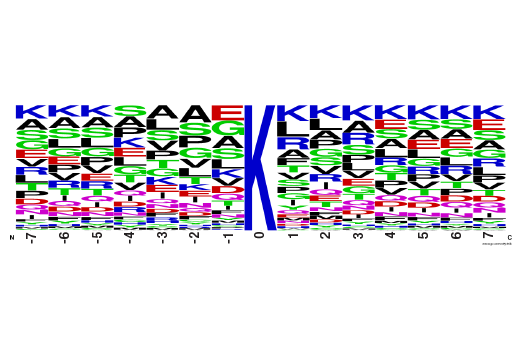 全部商品分类
全部商品分类

 下载产品说明书
下载产品说明书 下载SDS
下载SDS 用小程序,查商品更便捷
用小程序,查商品更便捷


 收藏
收藏
 对比
对比 咨询
咨询PTMScan® HS is an enhanced PTMScan® methodology with improved identification of post-translationally modified peptides. PTMScan® technology employs a proprietary methodology from Cell Signaling Technology (CST) for peptide enrichment by immunoprecipitation using a specific bead-conjugated antibody in conjunction with liquid chromatography tandem mass spectrometry (LC-MS/MS) for quantitative profiling of post-translational modification (PTM) sites in cellular proteins. PTMs that can be analyzed by PTMScan® technology include phosphorylation, ubiquitination, acetylation, and methylation, among others. The technology enables researchers to isolate, identify, and quantitate large numbers of post-translationally modified cellular peptides with a high degree of specificity and sensitivity (HS), providing a global overview of PTMs in cell and tissue samples without bias about where the modified sites occur. For more information on PTMScan® products and services, please visit Proteomics Resource Center.




All components in this kit are stable for at least 12 months when stored at the recommended temperature. Upon receipt, 99064S should be stored at 4°C. 25144S and 42424S should be stored at -20°C. Do not aliquot the antibodies.
参考图片
Motif analysis using all acetyl lysine peptides enriched and identified by PTMScan® HS Acetyl-Lysine Motif (Ac-K) Kit from two different samples. One milligram each of mouse embryo and HCT 116 human colon cancer cells were independently digested with trypsin and immunoprecipitated with PTMScan® HS Acetyl-Lysine (Ac-K) Magnetic Immunoaffinity Beads. Orbitrap Fusion™ Lumos™ mass spectrometer analysis identified a total of 5,229 non-redundant sites. The motif logo shows that the Ac-K antibody is a general motif antibody that recognizes the Ac-K motif independent of protein context, without other amino acid preferences.





